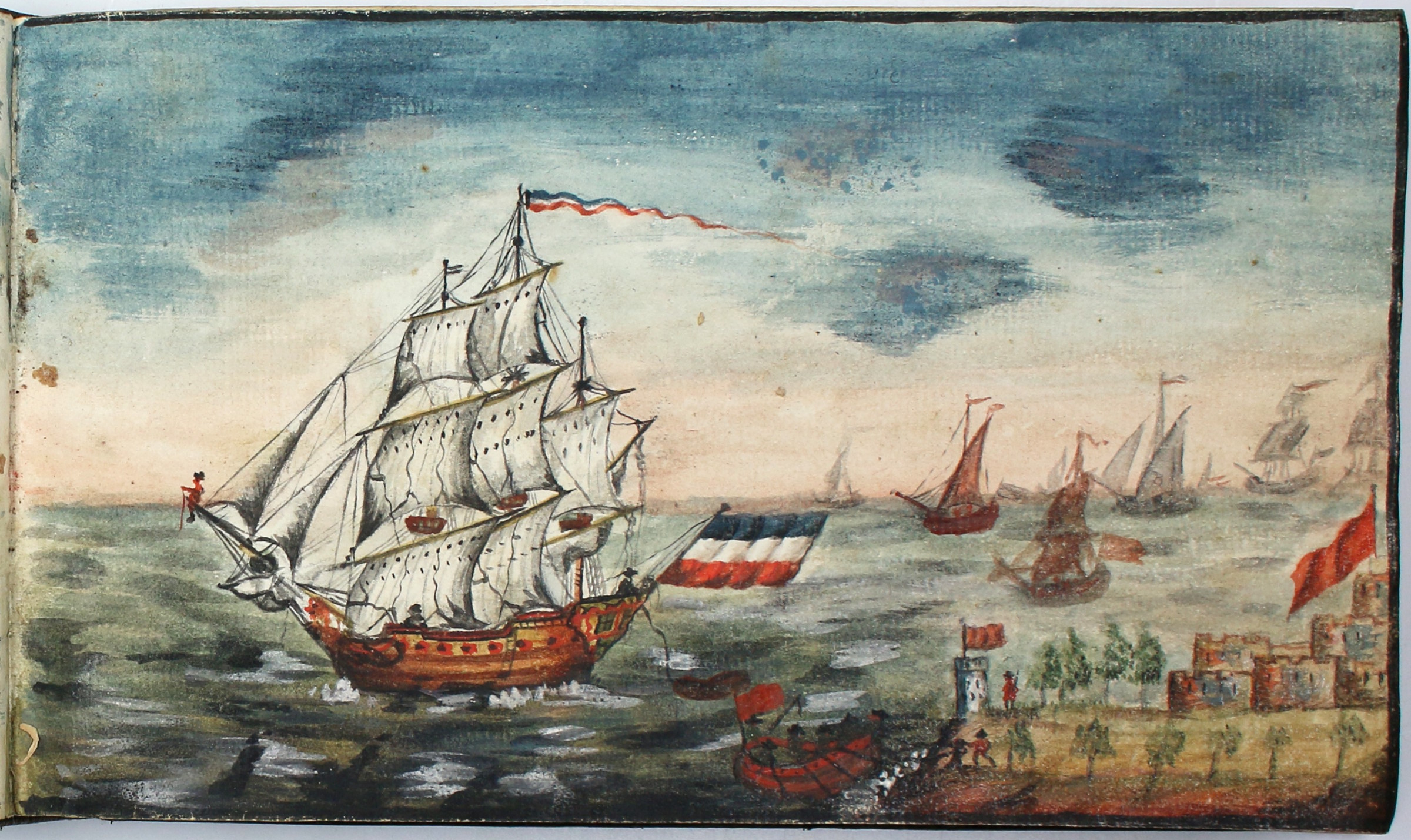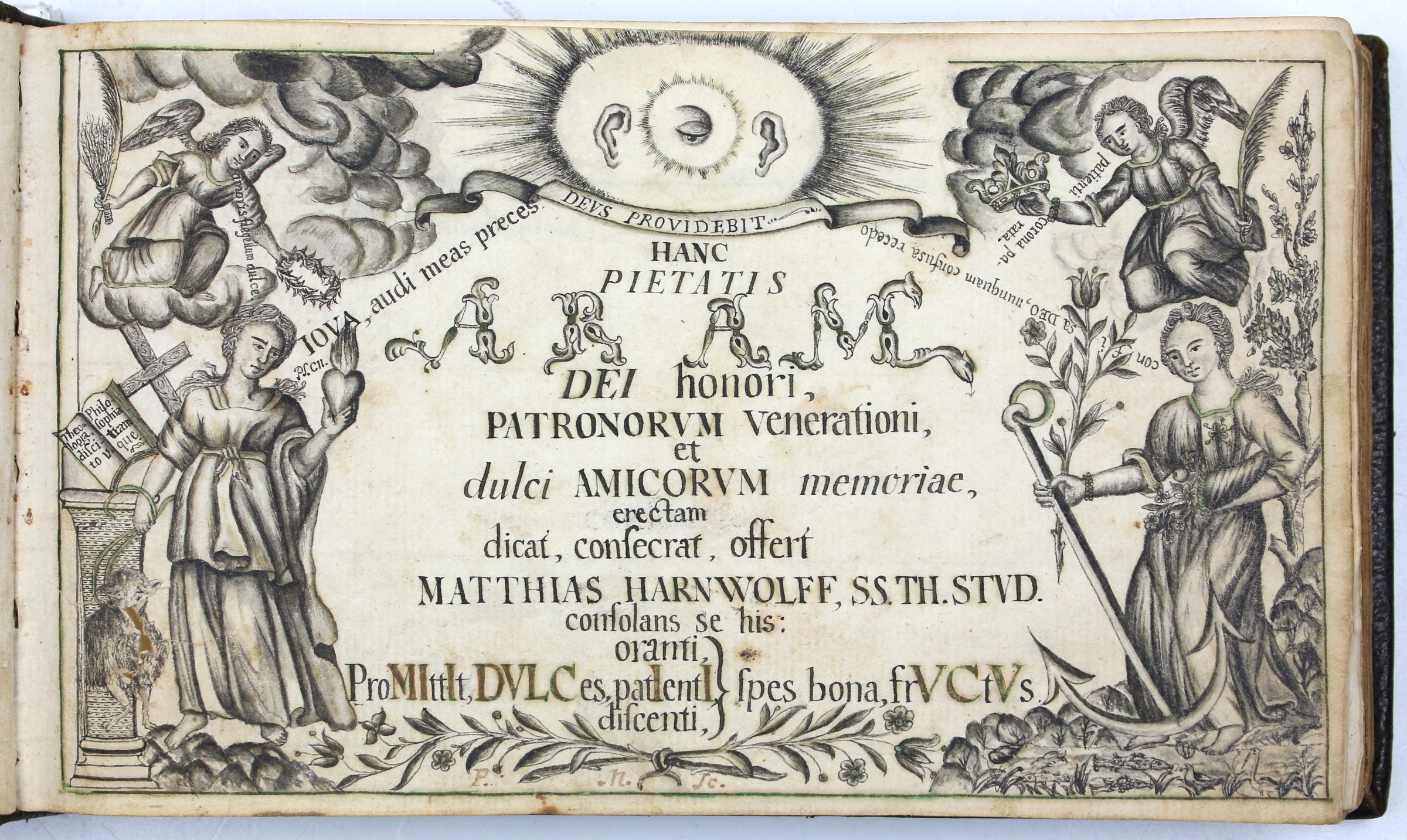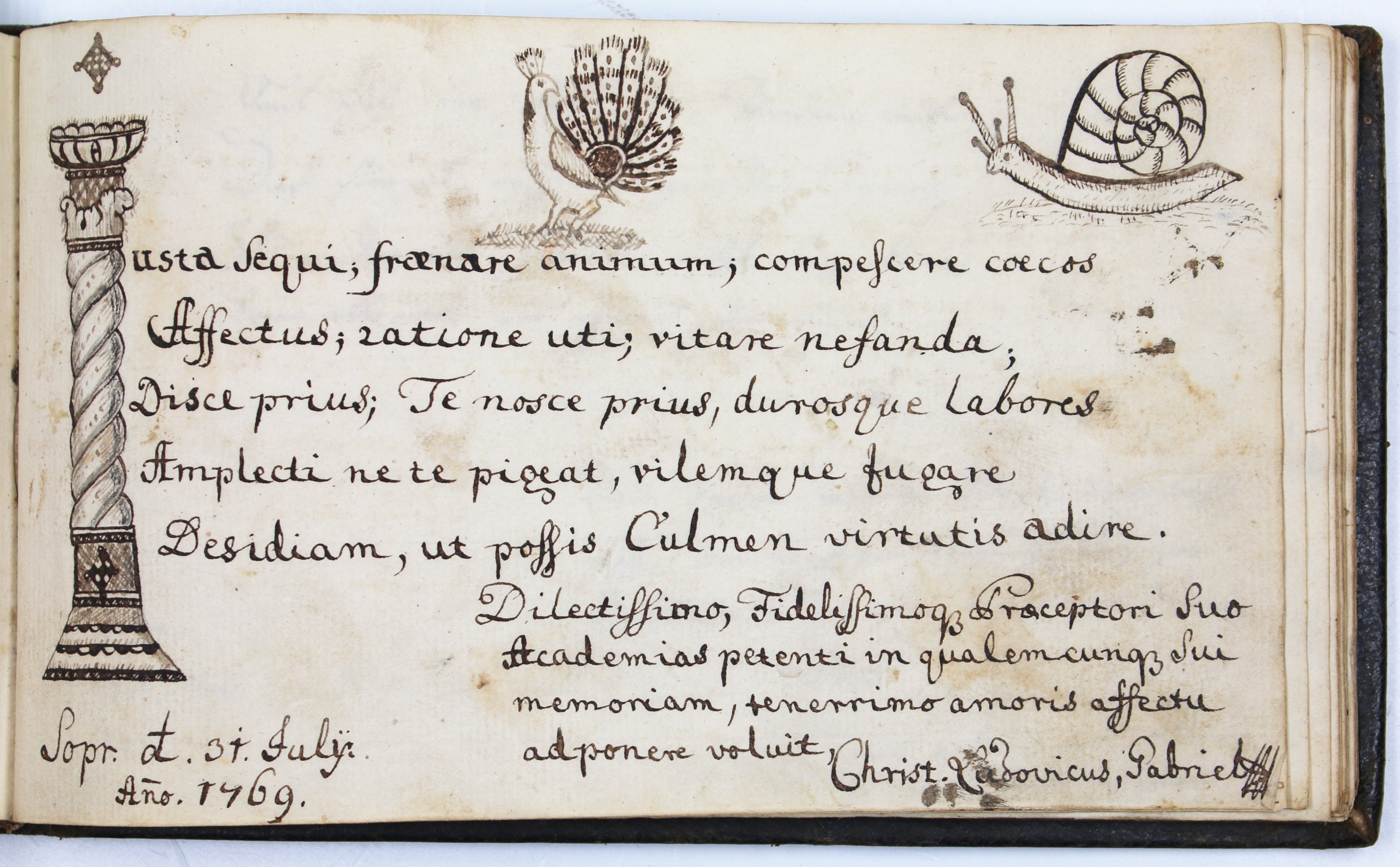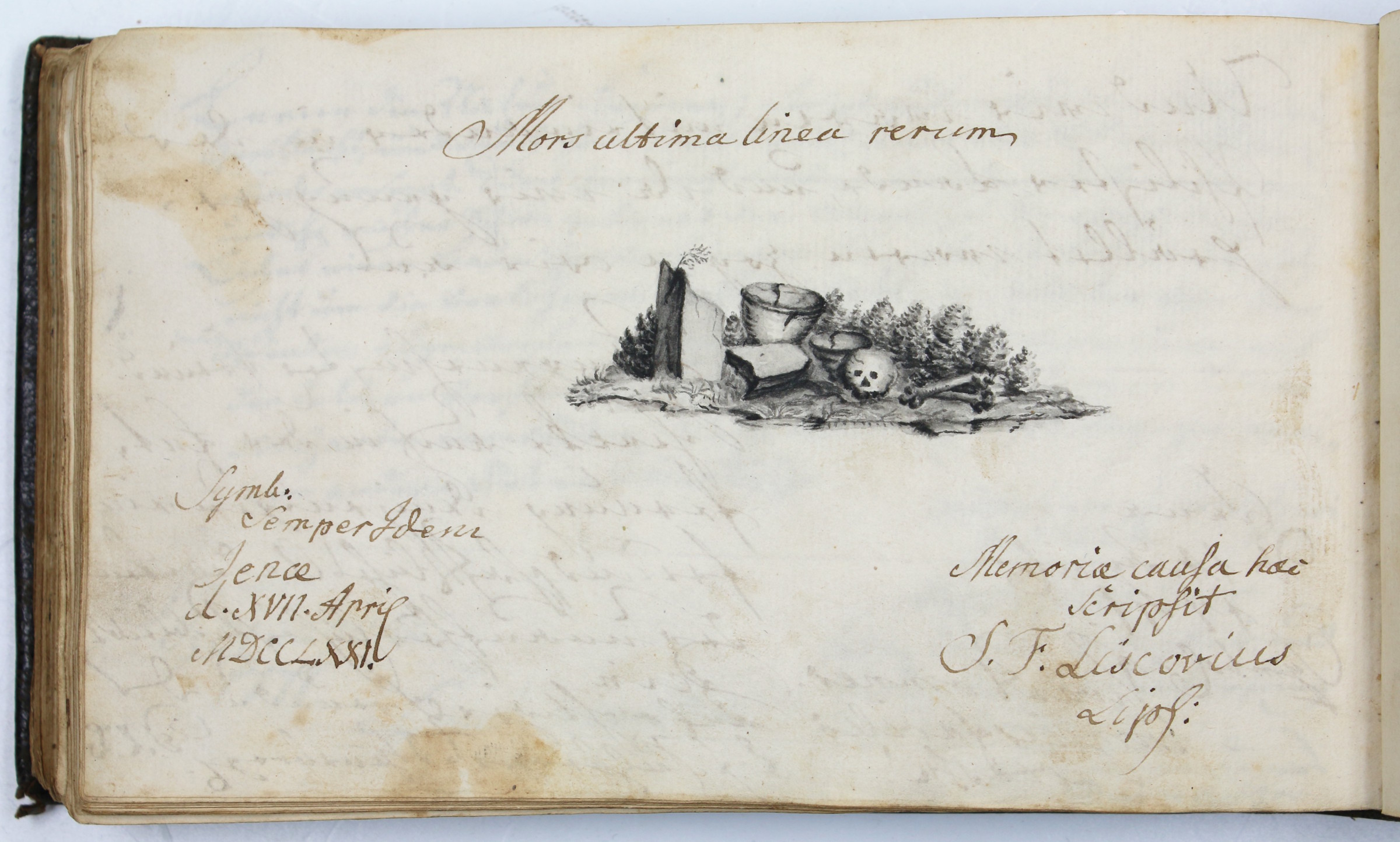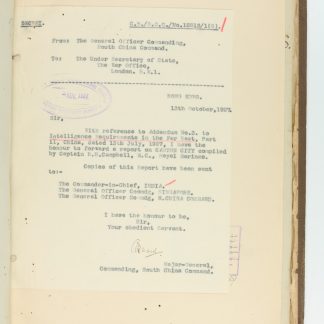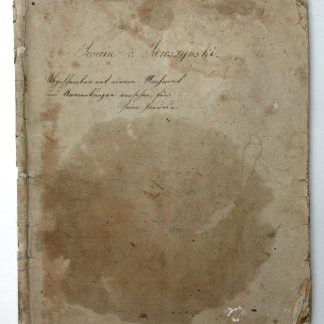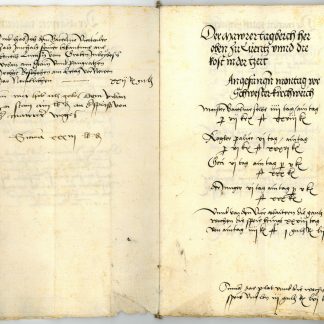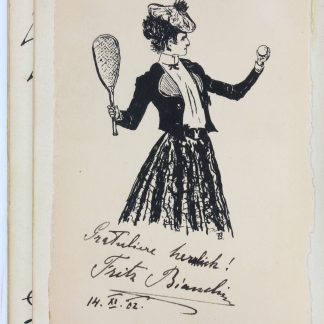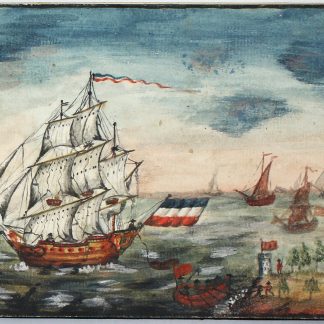Friendship album of the theologian Matthias Harnwolf with more than 250 entries.
Oblong 8vo. With pen-and-ink title-page, 4 watercolours, and several text vignettes. At the end are 5 leaves of "Regeln für Studirende" and "Nützliche Conversations Regeln", both probably in Harnwolf's own hand. A total of ca. 200 leaves, a few blank; come 6 ff. have been removed at an early stage. Original full brown leather binding, richly gilt to spine and covers, upper cover stamped "M.H. / 1769". Edges gilt; coloured endpapers (wanting flyleaf).
€ 12,500.00
Exceptionally comprehensive friendship album assembled by the theologian Matthias Harnwolf(f), who served as preacher in his native Agendorf (Ágfalva in Hungary) from 1783 until his death in 1809.
Harnwolf was a well-travelled man, of which fact his album gives ample evidence. The first entry is also the most prominent: it is written by none other than Friedrich Nicolai, Berlin's figurehead of Enlightenment, who inscribed a quote from Horace ("Aequam memento rebus in arduis servare mentem", dated "1763"). Further entries are mainly from Harnwolf's university years at Leipzig and Jena (1769-73), including by Johann Friedrich Bahrdt (professor and superintendent in Leipzig, 1713-75), Anton Friedrich Büsching (theologian and geographer, 1724-93), Joachim Georg Darjes (pastor, jurist, philosopher and economist, 1714-91), Johann August Ernesti (director of Leipzig's St. Thomas School, 1707-81), Johann Ernst Faber (professor of oriental languages, 1745-74), Justus Christian Hennings (moral philosopher and Enlightenment thinker, 1731-1815), Johann Friedrich Hirt (theologian and oriental scholar, 1719-83), Georg Friedrich Meier (philosopher, 1718-77), Johann August Nösselt (theologian, 1734-1807), August Friedrich Wilhelm Sack (philosopher, theologian and famed pulpit orator, 1703-86), Georg Christoph Silberschlag (scientist, 1731-90), Johann Joachim Spalding (theologian, hymnwriter and philosopher, 1714-1804), Lorenz Johann Daniel Suckow (naturalist, 1722-1801), Wilhelm Abraham Teller (theologian, hymnwriter and professor, 1734-1804), Johann August Heinrich Ulrich (philosopher, 1746-1813), Karl Friedrich Walch (legal scholar, 1734-99), Johann Georg Walch (theologian and lexicographer, 1693-1775), Johann Ernst Immanuel Walch (rhetorician, philologist and geologist, 1725-78), Johann Ernst Basilius Wiedeburg (physicist, astronomer and mathematician, 1733-89), and Friedrich Samuel Zickler (theologian, 1721-79).
While the bulk of contributors are theologians, jurists, and scientists, there is also an entry by a distant relative of Johann Sebastian Bach: young Johann Georg Bach (1751-97), who contributes a quotation from Shakespeare ("Men's evil manners live in brass; their virtues we write in water", dated Jena, 1772), would become organist at St George's in Eisenach a few years later; also, there is a musical manuscript by Johann Adolf Leutholff based on Klopstock's poem "Die Auferstehung" ("Resurrection"), which song remained in German Protestant hymnals well into the 20th century and became recognizable worldwide when it was adapted by Gustav Mahler in his 2nd Symphony.
Binding slightly chafed and bumped; one corner splitting; front hinge somewhat loosened; 1st leaf has later ownership stamp "MH"; slight paper flaw to title-page; somewhat stained and dusty throughout, but finely preserved in general.

